
Bob Bailey & Virginia Gregg
Welcome to the Great Detectives of Old Time Radio! A podcast featuring the best vintage detective radio programs. Each week from Monday through Saturday, we feature six of Old Time Radio's great detective series from the beginning of the show to its very last episode. And as a bonus, twice a month we also post a public domain movie or TV mystery or detective show video.
Along the way, I'll provide you my commentary and offer you opportunities to interact.
Subscribe to the show by clicking your favorite podcatcher in the sidebar.
And don't forget to follow me on Twitter and become a fan on Facebook.
- Your host, Adam Graham
Listen to "The Great Detectives of Old Time Radio" on Spreaker.
Currently Featuring
YOURS TRULY, JOHNNY DOLLAR THE FALCON DANGEROUS ASSIGNMENT DRAGNET MR. CHAMELEON THIN MAN… and more!
View all shows
Check out our other shows:
Recent Posts
Dragnet, Podcast, Procedural
EP1466: Dragnet: The Garbage Chute Murders
by Yours Truly Johnny Blogger • 0 Comments
Podcast: Play in new window | Download
Subscribe: Apple Podcasts | Spotify | Amazon Music | iHeartRadio | Email | TuneIn | RSS
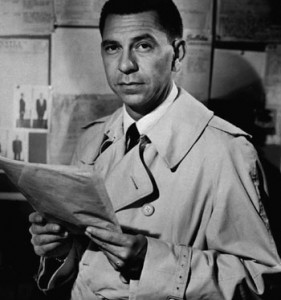
Friday investigates the murder of a professional organist who was killed by a man who entered the garbage chute.
Original Air Date: December 15, 1949
Support the show.
Golden Age Article, Nero Wolfe
Top 10 Nero Wolfe Novellas, Part Three
by Yours Truly Johnny Blogger • 0 Comments
I continue my list of the top 10 Nero Wolfe Novellas. See Part One and Part Two.
3) Disguise for Murder (1950)
This one was adapted for A Nero Wolfe Mystery and it was also done for CBC’s Rex Stout’s Nero Wolfe. So, it’s a stand out whenever anyone looks at adapting the Wolfe canon, and for good reason.
Wolfe has been talked into opening the brownstone and his orchid to a flower club. At the event, a woman takes Archie aside to confide him that she recognized a murderer at the party, but she’ll only confide it to Wolfe. It goes without saying that before Archie can get Wolfe back to the office, the woman is killed in Wolfe’s office.
This is not only unfortunate, but very inconvenient for Wolfe as Inspector Cramer peevishly orders the office sealed and Wolfe just as peevishly refuses to divulge a key observation to Cramer. Cramer uses Wolfe’s dining room to interrogate the witnesses and Wolfe orders Fritz to make sandwiches for everyone but the police. The novella is far more subtle than the Television version for A&E, as it quietly shows the tension between Wolfe and the official police rather than Wolfe shouting at the police.
The story than features one of the most memorable climaxes in the Wolfe canon with Archie facing more physical danger than ever and a truly surprising solution.
2) Counterfeit for Murder (1961)
A woman named Hattie Annis comes to Wolfe’s door looking quite disheveled and unlike the high value clients that Wolfe usually pays for and Archie’s not inclined to let her in. However, Archie’s willing to let her see the big guy because Wolfe is under the impression that he’s a sucker for a certain type of woman and Archie thinks it’ll be fun to show Wolfe up.
Hattie has a stack of money that she found in her boarding house which shelters showbiz people whether they can pay their $5 a week rent or not. When Wolfe sends Archie to the boarding house to investigate, they find an undercover female Treasury Agent dead.
The cop-hating Hattie Annis is without a doubt Wolfe’s most interesting client so far. Her speech and personality (she calls Wolfe “Falstaff”) make the story one of the most enjoyable to read in the canon.
The mystery isn’t half bad either. Throw in some T-men and the NYPD in a turf war and there are Few Wolfe stories of any length that can beat this one for pure entertainment value.
1) The Next Witness (1951)
“The Next Witness” finds Wolfe called as a witness to a peripheral matter in a murder trial. While being out and watching the trial, he becomes convinced that the prosecution’s case is wrong and leaves the courtroom with Archie, going on the run from the law while Wolfe tries to find the truth.
It’s fascinating to read of Wolfe out in the light, asking questions of people in their own place of business is an incredible change of pace. There’s also a classic scene with Wolfe in a diner eating Chili and waxing philosophical about it.
“The Next Witness” is truly a top notch story and it shows Wolfe at his wiliest and most resourceful as he’s forced to stay in a strange house, travel around in a car, and question witnesses in strange places. The payoff scene in the courtroom features one of Wolfe’s most brilliant stratagems.
You can find all the Nero Wolfe books in Kindle, Audiobook, and book form on our Nero Wolfe page.
If you enjoyed this post, you can have new posts about Detective stories and the golden age of radio and television delivered automatically to your Kindle.
Podcast
All I Needed to Know I Learned from Dragnet Excerpt: Do Hard Things; Expect Others to Follow
by Yours Truly Johnny Blogger • 1 Comment
The following is an excerpt of my newest ebook All I Needed to Know I Learned from Dragnet which examines the careers and histories of seven great detectives of literature, radio and film. This is the first of five lessons learned from the immortal Joe Friday:
Do Hard Things; Expect Others to Follow
A pop culture stereotype of a recruiter for dangerous jobs is someone who slyly makes you promises about great benefits and retirement packages and never mentions the risks of the job: including the risk you may not live to enjoy the retirement benefits.
This isn’t true of the vast majority of recruiters, and it wasn’t true of Joe Friday. In the episode, “The Interrogation,” Friday and Gannon were worked out of Internal Affairs. They brought in an undercover rookie cop named Culver who’d been identified as a man who committed an armed robbery.
Culver protested his innocence, felt being pulled into internal affairs was the last straw, and threatened to quit the force. He’d already had enough grief after his fiancée left him over his decision to become a police office. After Friday found out Culver was indeed innocent, he hesitated to tell him because Culver would most likely quit.
Instead Friday decided to address Culver’s inclination to leave. Friday correctly guessed that Culver’s fiancée was disappointed because he was a college graduate and she hoped he’d get better job. This was back when a degree actually held that promise.
To address the despondent cop, Friday could have explained that the department had good job security. There will always be a need for someone to ensure public safety. He could have talked about all the opportunities to be promoted within the department to Lieutenant, Captain, or even the Chief’s office. He could have explained there were plenty of women who would respect Culver’s life choices and be supportive of him.
Instead, Friday said that perhaps the fiancée’s fears were justified and explained what it meant to be a cop. It meant having a schedule constantly subject to change, being disrespected at social functions, and being the butt of jokes. “You’re a cop, a flatfoot, a bull, a dick, John Law. You’re the fuzz, the heat; you’re poison, you’re trouble, you’re bad news. They call you everything, but never a policeman.” He also said the job required sacrifice and frugality. “If you count pennies, you can put your kid through college, but you better plan on seeing Europe on your television set.”
Of the hazards of the job, Friday was said, “When you try to arrest a drunken prostitute in a Main St. bar, and she rips your new uniform to shreds, you’ll buy another one out of your own pocket.”
Friday also didn’t promise a job that was great for your emotional well-being and told Culver he would encounter “…underfed kids, beaten kids, molested kids, lost kids, crying kids, homeless kids, hit-and-run kids, broken-arm kids, broken-leg kids, broken-head kids, sick kids, dying kids, dead kids. The old people nobody wants—the reliefers, the pensioners, the ones who walk the street cold, and those who tried to keep warm and died in a $3 room with an unventilated gas heater. You’ll walk your beat and try to pick up the pieces.”
He warns of boredom and promises more of the same if Culver decides to move up to detective. “You’ll do leg work until you’re sure you’ve talked to everybody in the state of California.”
In addition, Friday promised him that the job would include filling out constant paperwork and that it would mean working with difficult decisions and people he didn’t like in prosecuting crimes. “You’ll learn to live with the District Attorney, testifying in court, defense attorneys, prosecuting attorneys, judges, juries, witnesses. And sometimes you’re not going to be happy with the outcome.”
Why would anyone stay on the police force under those conditions?
Friday explained, “There are over five thousand men in this city who know that being a policeman is an endless, glamourless, thankless job that’s gotta be done. I know it, too, and I’m damn glad to be one of them.”
And that was enough for Culver, who said he’d call his fiancée. It’s also enough for tens of thousands of cops across America who find fulfillment in doing something that’s not always fun but is necessary and vital to the security of civilization.
Friday’s honesty about the challenges he faced was not uncommon in that time. Earlier in that decade, President John F. Kennedy, in challenging America to go to the moon declared, “We choose to go to the Moon in this decade and do the other things, not because they are easy, but because they are hard.”
In addressing Officer Culver, Friday also avoided a key pitfall that many leaders make today. Authors Chip and Dan Heath in their book Made to Stick said that many of those trying to motivate others were “stuck in Maslow’s basement,” a reference to the famous psychologist’s hierarchy of needs, which suggested people’s basic needs—such as food, clothing, shelter, and safety—had to be first be met before they’d care about any higher level needs such as belonging or serving their fellow men. However, we make a mistake if we only seek to motivate everyone by lower-level needs.
According to the Heath brothers, most of the people they interviewed for their book were motivated by higher-level needs but assumed others were motivated only by money and related concerns. Thus many leaders fail to motivate people because they don’t understand what motivated them. Friday believed Culver had been motivated to join the police force by a desire to serve and make a difference in his community. Friday also may have reasoned that, if Culver was only interested in money, ease,and status, he didn’t belong on the police force anyway.
Not all of us are cut out to join the police force, but instead of seeking money or easy work, we can find fulfillment in helping others in whatever our work is or however we volunteer outside of work. If we do find something that motivates us because it tugs at our heart or it’ll make peoples lives better, we should also seek to motivate others to share that vision rather than hoping they’ll see some material benefit.
All I Needed to Know I Learned from Dragnet examines the history and career of seven great fictional detectives and twenty life lessons that can be learned from them. The previous ebook All I Needed to Know I Learned from Columbo is still
For all other e-readers, All I Needed to Know I Learned from Dragnet and All I Needed to Know from Columbo are available at Smashwords.com
CBS, Podcast, Yours Truly Johnny Dollar, YTJD Add
EP1465: Yours Truly Johnny Dollar: The J.P.D. Matter
by Yours Truly Johnny Blogger • 0 Comments
Podcast: Play in new window | Download
Subscribe: Apple Podcasts | Spotify | Amazon Music | iHeartRadio | Email | TuneIn | RSS
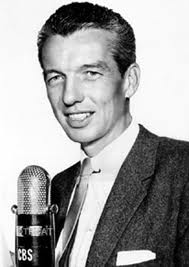
Johnny is called in the by owner of an old fashioned brewery who claims a new brewery’s plans will destroy her’s.
Original Air Date: September 15, 1957
When making your travel plans, remember http://johnnydollarair.com
(more…)
Mutual, Nick Carter, Podcast
EP1464: Nick Carter: The Case of the Luminous Spots
by Yours Truly Johnny Blogger • 0 Comments
Podcast: Play in new window | Download
Subscribe: Apple Podcasts | Spotify | Amazon Music | iHeartRadio | Email | TuneIn | RSS
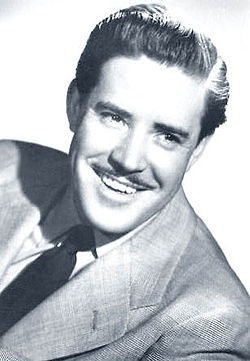
A burglary and the murder of a janitor are tied to Nick Carter’s boys club.
Original Air Date: April 27, 1947
Support the show.
CBS, Philip Marlowe, Philip Marlowe OTR, Podcast
EP1463: Philip Marlowe: The Headless Peacock
by Yours Truly Johnny Blogger • 0 Comments
Podcast: Play in new window | Download
Subscribe: Apple Podcasts | Spotify | Amazon Music | iHeartRadio | Email | TuneIn | RSS
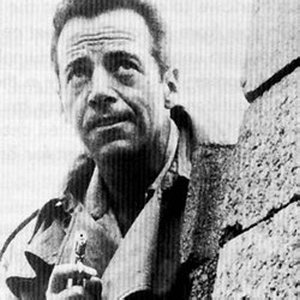
A woman hires Marlowe to help her fiancé who has a gambling problem.
Original Air Date: July 16, 1949
Crime and Peter Chambers, NBC, Podcast
EP1462: Bubbles Greco and the Greek Private Eye
by Yours Truly Johnny Blogger • 0 Comments
Podcast: Play in new window | Download
Subscribe: Apple Podcasts | Spotify | Amazon Music | iHeartRadio | Email | TuneIn | RSS
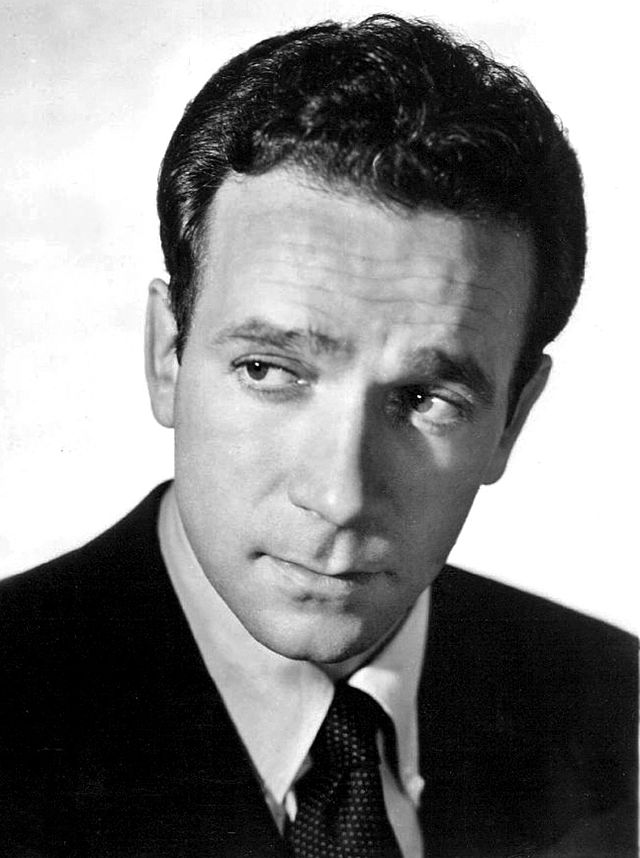
A bubble dancer friend of Pete’s refers a Greek Private Investigator in New York to help locate the other half of a valuable tiara.
Original Air Date: June 22, 1954
Support the show.
Share this:
- Click to share on Facebook (Opens in new window)
- Click to share on Twitter (Opens in new window)
- Click to share on Pinterest (Opens in new window)
- Click to share on LinkedIn (Opens in new window)
- Click to share on Reddit (Opens in new window)
- Click to share on Tumblr (Opens in new window)
- Click to email a link to a friend (Opens in new window)
- Click to print (Opens in new window)




